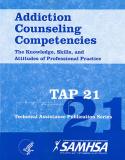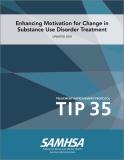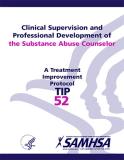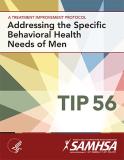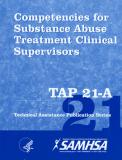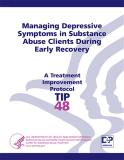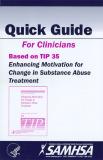
This manual presents guidelines for enhancing motivation among patients in treatment for alcohol and substance misuse. It describes several motivational approaches, ways to integrate these approaches, and two assessment tools.
Units per Product
Download
Quick Guide for Clinicians Based on TIP 35
File Type: PDF
File Size: 130 KB


